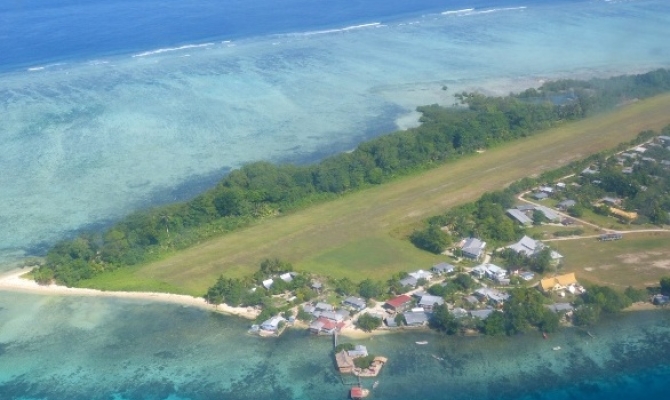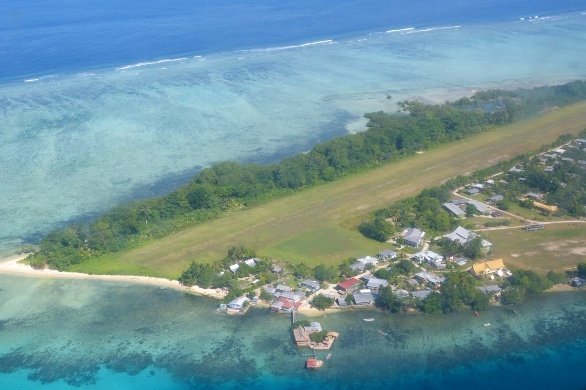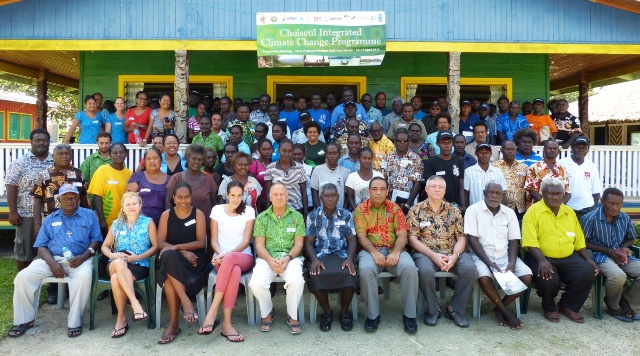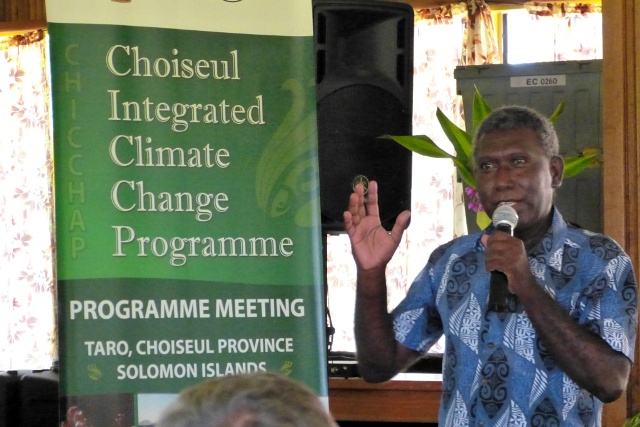
14/15 April 2015, Choisuel, Solomon Islands - Travelling for up to a day in open boats exposed to rain and wind, community leaders from across Choiseul Province in the Solomon Islands gathered to discuss the progress of a partnership that has become a model for the Pacific Region.
'Thank you for travelling afar to join us this week in Choiseul! It signifies your continued commitment and support towards the programme and for this we are extremely grateful' said Dr. Melchior Mataki, Permanent Secretary of the Solomon Islands Ministry for Environment, Climate Change, Disaster Management and Meteorology.

Choiseul is home to over 26,000 people spread across 503 villages. Transport can be very difficult, as no formal road system exists across the 3,292km2 kilometres of land in the Province. Despite this, 107 community leaders, government staff and project partners arrived in the Provincial capital of Taro to discuss the 11 projects that work under the Choiseul Integrated Climate Change Programme (CHICCHAP).
The programme aims to increase the resilience of Choiseul Province against climate change and natural disasters, enhance food security and strengthen the resilience of natural ecosystems.
'CHICCHAP has been advocated in regional and international forums. The Government of Kiribati is also implementing a similar programme known as the 'Whole of Island' approach. It is an approach we would like to replicate in other provinces in the Solomon Islands as we recognise there are multiple players working in the climate change/development spaces and capacity and resources must be shared to coordinate, implement and evaluate these programmes' said Dr. Mataki.

Premier of Choiseul Province, Jackson Kiloe announced the meeting aims to discuss "the progress made toward achieving the goals set out in the last meeting in 2013. We will also deliberate on possible holistic and collaborative approaches to address issues and lessons learned so far. I would encourage all of you to openly share with us your experiences out in the field and how you see us going forward. Local experiences and inputs are crucial in the successful implementation of the program".
Being such a large province with so many communities, project efforts have been spread out across a wide area. Solomon Islands Government (SIG), Choiseul Provincial Government (CPG), The Secretariat of the Pacific Community (SPC); Secretariat of the Pacific Regional Environment Programme (SPREP); Deutsche Gesellschaft Für Internationale Zusammenarbeit (GIZ); The Nature Conservancy, and the United Nations Development Programme (UNDP) and Ecological Solutions (ESSI) are all implementing projects that share resources and plan together to ensure maximum benefit to the people of Choiseul.
Despite the obstacles encountered working together across the vast Province, Premier Kiloe was quick to advocate the joint programme approach. "We realise the difficulties in making this apparently very sensible programmatic approach work. Different partners have different modes of delivery, different financial and reporting rules. It is not easy to get experienced technical staff to stay and live with us in Taro". 
Premier of Choiseul Province, Mr. Jackson Kiloe
CHICCHAP is building upon a shared vulnerability assessment that saved government and communities in Choiseul a great deal of time and now new projects are joining the partnership to ensure the work begun continues beyond the average 3 year cycle typical of development projects.
"We are convinced that the CHICCHAP approach to bundle resources rather than compete or work in parallel, and to conceptualise a long term, comprehensive, multi-sectoral approach, is the way forward towards the development of our society" concluded Premier Kiloe.
Projects in the partnership are made possible by the generous support of the American People through the United States Agency for International Development (USAID), the Adaptation Fund, Least Developed Country Fund (LDCF) and German Cooperation (Deutsche Zusammenarbeit).